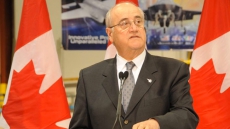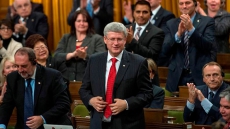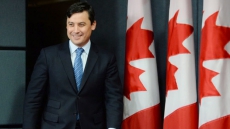HALIFAX — Here are some questions and answers about meningococcal meningitis:
Question: What is it?
Answer: Meningococcal meningitis is an inflammation of the lining of the brain and spinal cord spread by bacteria.
Q: Who can get it?
A: Anyone, but those most at risk include children under five, adolescents between 15 and 18 years of age and people living in close quarters. In Canada, less than one person in every 100,000 gets it. It can cause death in up to 10 per cent of those infected.
Q: How do people get infected?
A: It is spread by direct contact with secretions from the nose and mouth through activities such as kissing and sharing food, drinks, eating utensils, cigarettes and toothbrushes. Infection often happens during the winter and spring months.
Q: What are the symptoms?
A: Symptoms may include sudden fever, headache, change in level of alertness, stiff neck, rash, nausea, vomiting and increased sensitivity to light.
Q: If someone is vaccinated against meningitis, how can it be a problem for them?
A: There are five strains of meningitis that cause the deadly forms of the disease: A, B, C, Y and W-135. Healthy infants are vaccinated against the C strain. Adolescents and young adults get a booster shot for the C strain and another shot to protect against the A, Y and W-135 strains. Vaccines for the B strain exist but aren't routinely given in Canada.
Q: What is the treatment for those infected?
A: Bacterial meningitis can be treated with antibiotics. Early diagnosis and treatment are important.





